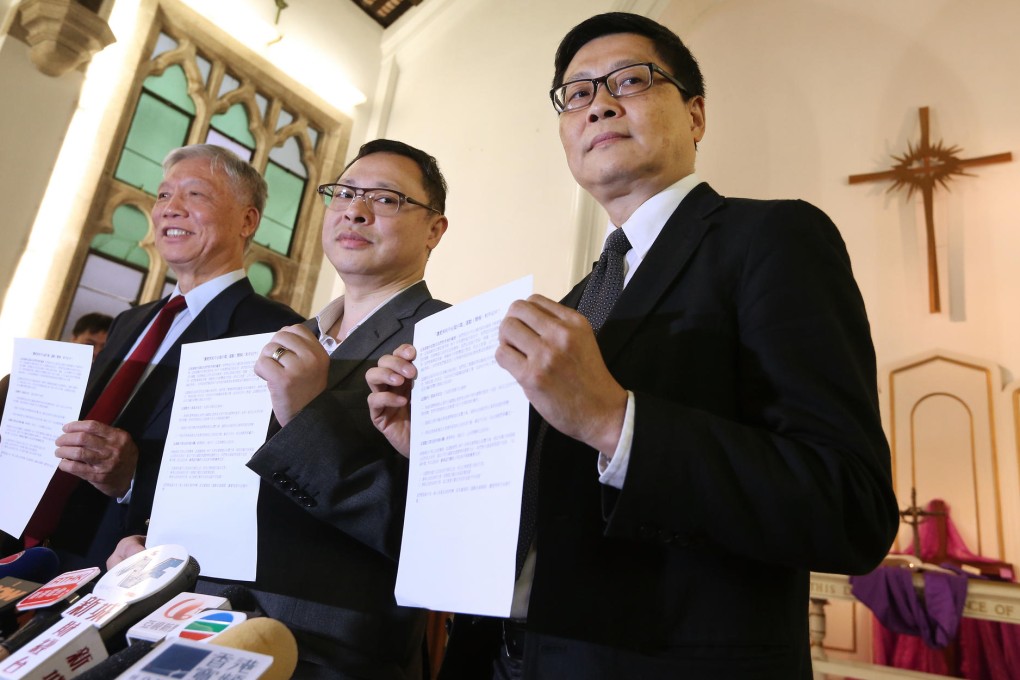Occupy Central Hong Kong supporters ready to block traffic and go to jail for democracy
Three-tiered strategy includes blocking traffic and being prepared to go to jail to press the case for universal suffrage

Plans were revealed yesterday for political protesters to block traffic in the heart of the city in July next year, unless the government delivers an acceptable proposal for universal suffrage.
But the civil disobedience plan - dubbed the Let Love and Peace Occupy Central movement - would be "absolutely non-violent", organisers said as they unveiled the campaign's manifesto at a news conference at the Kowloon Union Church.
The press conference marked the official launch of the controversial plan first proposed in January by Dr Benny Tai Yiu-ting, an associate professor of law at the University of Hong Kong.
The blueprint sets out the steps to be taken, finishing with the "occupy action" in Central, if the government fails to deliver a proposal for universal suffrage that is in line with international democratic standards.
"Civic awakening will determine the success of the movement," Tai said yesterday. "We shall be like preachers communicating enthusiastically with different communities to convey universal values such as democracy, universal and equal suffrage, justice and righteousness … We hope [Hong Kong people] will be willing to pay the price."
We shall be like preachers communicating enthusiastically with different communities to convey universal values such as democracy, universal and equal suffrage, justice and righteousness
Tai said he was hoping that at least 10,000 people would participate. He said he was expecting them to support the movement in various ways, from performing acts of civil disobedience to risking arrest and agreeing to plead no contest at trial.